What is CBD? The complete guide
Definition of CBD
CBD (Cannabidiol) is an active ingredient in cannabis sativa. It has no psychotropic effects and is known for its numerous beneficial properties. CBD interacts with the receptors in our endocannabinoid system (ECS), making sure it keeps its balance. This active ingredient can therefore support the body’s reaction to pain, stress, anxiety, and sleep disorders.
What is CBD used for?
Cannabidiol helps the body cope with stress and promotes the balance of its functions. It is a natural ally against insomnia, stress, anxiety, period pain, migraine, and chronic pain.
Its mechanism of action is due to its interaction with our endocannabinoid system. Roughly speaking, cannabidiol sends signals to the receptors of the ECS, which activate and ensure that important physiological functions such as sleep, pain perception, and mood regulation run smoothly.
How does CBD interact within the body?
Numerous scientific studies and user testimonials show that CBD can positively affect various physiological functions. If they are disturbed, cannabidiol can indirectly help normalize them by interacting with the cannabinoid receptors and balancing the ECS. Thus, it can, for example, stimulate the immune system or indirectly act on inflammation.
CBD and endocannabinoid system
The endocannabinoid system is a sophisticated network of receptors that interact with cannabinoids and play a prominent role in regulating many physiological and cognitive processes.
You can imagine cannabinoid receptors as letterboxes, in which the cannabinoids throw "messages" that are subsequently processed by the ECS. Cannabinoid receptors are divided into two categories: CB1 and CB2. The former are mainly found in the brain. The latter are concentrated in the nervous system, the digestive system, and the immune system.
What are cannabinoids?
Cannabinoids are chemical compounds that bind to CB1 and CB2 receptors. There are three classes of cannabinoids: endogenous, natural, and synthetic.
Endogenous cannabinoids (endocannabinoids)
Endocannabinoids are organic compounds produced by our body. They belong to a class of lipid messengers that interact with the receptors of the ECS and operate in both the central and peripheral nervous systems. We know five endogenous cannabinoids: anandamide, arachidonoylglycerol, noladin, virodhamine, and N-arachidonoyl dopamine.
Natural cannabinoids (phytocannabinoids)
Phytocannabinoids are produced by cannabis (hemp) and concentrated in its sticky resin. So far, we have identified no fewer than 113 such compounds. However, research has focused on the three that occur most frequently: Delta-9-tetrahydrocannabinol (THC), cannabidiol (CBD), and cannabinol (CBN). Another noteworthy phytocannabinoid is cannabigerol (CBG), a non-psychoactive compound discovered around 1964. CBG is found in young hemp plants. While they ripen, it converts into CBD, THC, and CBC (cannabichromene).
Synthetic cannabinoids
Synthetic cannabinoids are produced in labs and used as an ingredient in various medicines. They mimic the properties of endocannabinoids and , therefore, bind to our CB1 and CB2 receptors.
What are the potential health benefits of CBD?
Studies and testimonials confirm the beneficial effects of cannabidiol.
Let's look at the main properties of this active ingredient:
CBD can reduce pain perception by interacting with the ECS. This cannabinoid binds to specific receptors in the brain and thus triggers reactions in various body regions, stimulating processes that can counteract inflammation.
CBD can help suppress nausea and vomiting. Research shows that the ECS is also involved in regulating nausea, regardless of its cause. CBD oil is easy to digest, free from chemicals, and tastes much better than conventional antiemetics, which are high in antacids and bismuth.
Some studies suggest that cannabidiol can help treat schizophrenia and other mental health problems such as bipolar disorder.
Cannabidiol can help prevent some types of seizure disorder and is a basic component of Epidiolex, which is used to treat drug-resistant childhood epilepsy and Dravet syndrome.
It has been shown that Cannabidiol can alleviate stress and anxiety and in particular the symptoms of post-traumatic stress disorder (PTSD) and obsessive-compulsive disorder (OCD), which according to studies might also be caused by a lack of anandamide in the ECS.
Although it is known for its calming properties, cannabidiol can also increase energy levels. What sounds paradoxical is explained by the fact that CBD supports the body’s detox system and favors cell regeneration. In addition, CBD is an excellent antioxidant, according to a 2008 study even better than vitamins C and E.
Partly due to its anti-inflammatory effects, cannabidiol can potentially reduce oxidative stress and thus help protect neurons from cell death.
CBD is also recommended for insomnia and sleep disorders. Its relaxing properties can help you fall asleep and sleep through the night.
CBD in the form of oil, capsules, or gummies
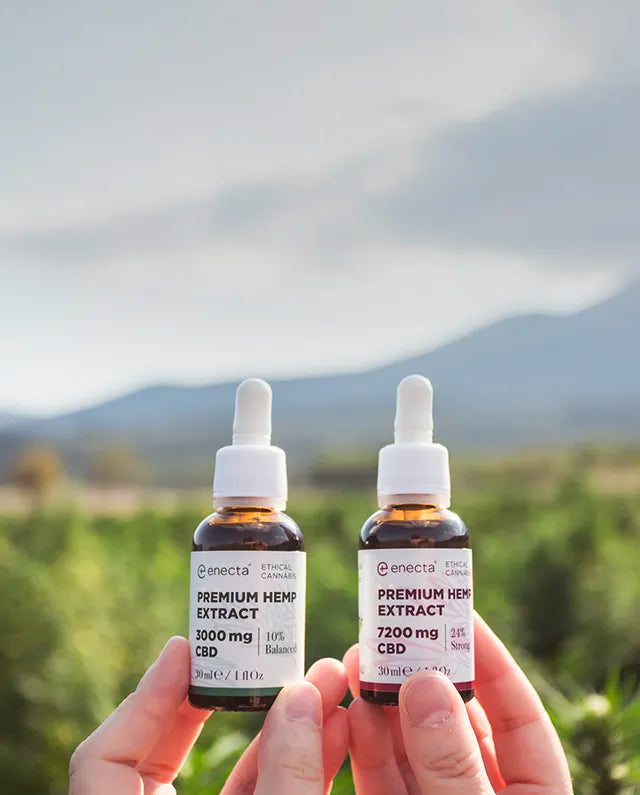
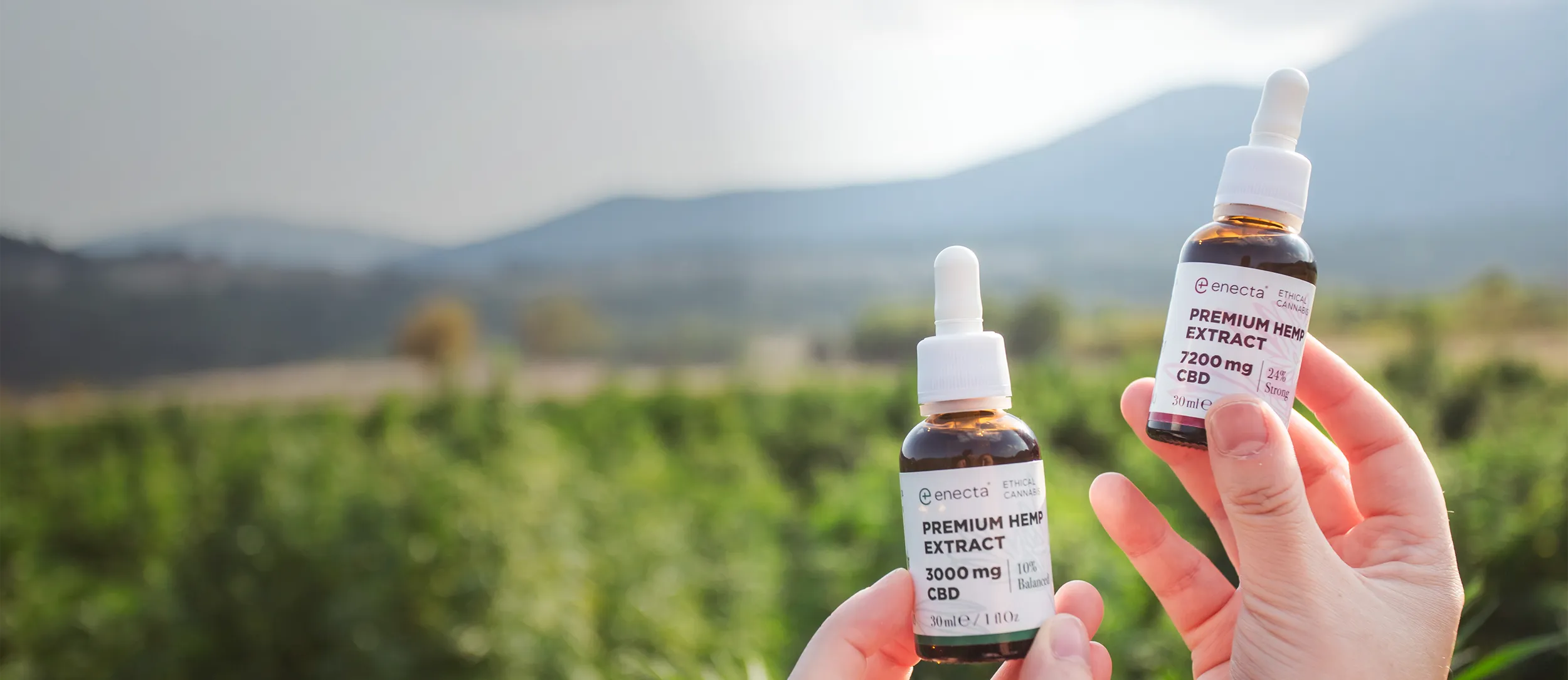
How to take CBD
CBD oil, CBD capsules, CBD gummies, crystals, cosmetics, and CBD for dogs and cats
There’s something for every taste.
CBD products differ mainly in terms of:
- Composition and form
- Mode of ingestion
- CBD content
- Presence of other active ingredients
CBD oil can be dosed very precisely and, thus, adapted to one’s own needs. Another advantage is its rapid onset of action. If you drop the oil directly under your tongue and keep it there for a few minutes, it quickly enters the bloodstream through the oral mucosa.
The oil is therefore the most popular CBD product. It is available in different strengths and can be used for a wide range of ailments.
CBD Capsules are easy to carry around, simple to take and you don’t need to dose them.
CBD Gummies are the optimal choice for those who want to combine the beneficial properties of cannabidiol with the taste of fresh fruit.
CBD crystals are ideal for those who need a high CBD dosage. As they are highly concentrated, even small amounts are often enough to trigger the desired effect. Crystals can be placed under the tongue, vaporized, or added to food and drinks.
CBD cosmetics like body lotion, topical CBD oil, or anti-aging cream are a caress for your skin and help to fend off free radicals.
Hemp oil with CBD for animals can support your four-legged friend’s reaction to stress, arthritis, and chronic pain.
CBD stands for cannabidiol. Cannabidiol is one of the cannabinoids found in the Cannabis sativa plant.
CBD oil tastes rather neutral. Some oils might have a pleasant, slightly grassy aftertaste, typical of organic hemp extracts. Crystals, on the other hand, are completely neutral in taste.
As it is non-intoxicating and legal, drug tests are generally not designed to detect CBD. But even if a test should yield a positive result, there wouldn’t be legal consequences. However, you should always choose products made from EU-certified hemp. That’s the only way to be sure to purchase a CBD product containing less than 0,2% THC as required by law.
CBD Dosage: How much should you take?
Unfortunately, there is no general answer. Too many factors influence how CBD interacts with the body, including:
- Body weight
- Age
- Metabolism
- Lifestyle
- State of health
- Use of medication
However, the chart below can help you determine your feel-good dose.
Microdose:
1-20 mg daily. It is optimal if you are new to CBD or use it to boost your general well-being.
Standard dose:
10 -100 mg daily. It is recommended for acute and chronic pain, sleep disorders, severe anxiety, and high levels of stress.
Macrodose:
50-800 mg daily. Such dosage is rare and usually administered under medical supervision.
We always recommend taking it slowly and starting with a few mg daily. If the effect falls short of expectations, gradually increase the dose.
If you intend to use cannabidiol with medications, you should always seek medical advice to prevent undesirable interactions.
Can you overdose on CBD?
An overdose as it can happen with toxic or intoxicating substances can be ruled out. Cannabidiol has been shown to have a low toxicity and is very well tolerated. According to research, an individual can take up to 1500 mg of CBD without experiencing relevant side effects.
Side effects of CBD
A 2018 WHO report underlines that cannabidiol is a safe and well-tolerated compound without negative effects on human health. The report also emphasizes that CBD does not cause addiction or dependence and has no negative consequences for public health.
That said, CBD can have mild side effects (e.g. dry mouth, nausea, or tiredness). However, they generally disappear by themselves within a short time.
We also recommend avoiding CBD during pregnancy and breastfeeding.
What is the difference between Hemp and Marijuana?
The difference between Hemp and Marijuana is their THC content. Hemp plants contain between 0,2% and 0,6% THC and the products derived from them don’t have psychotropic effects. Marijuana contains higher levels of THC.
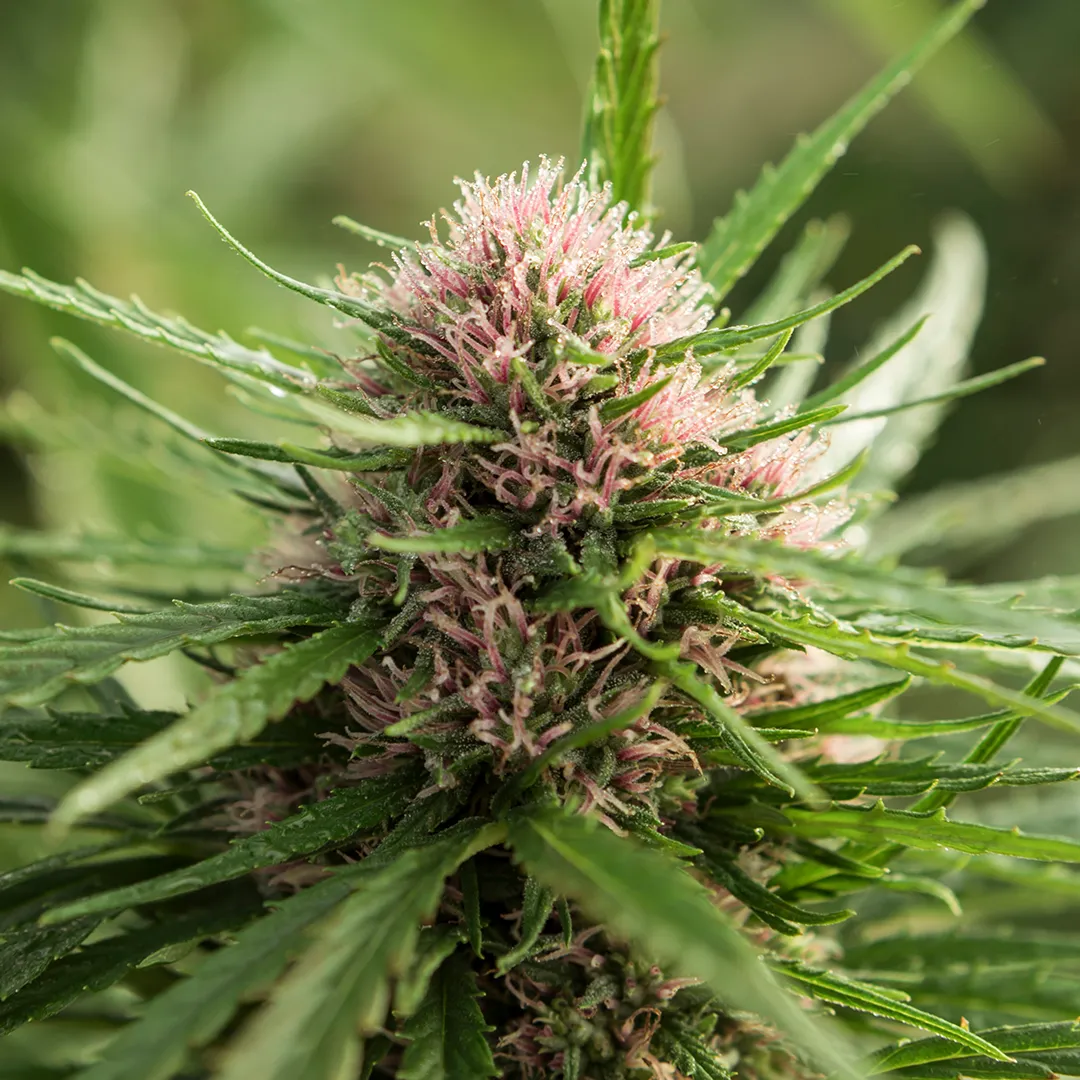
CBD vs THC: What’s the difference?
CBD and THC are two of the main compounds of cannabis. While they have some structural similarities, their effects are very different.
- THC is intoxicating. CBD does not cause intoxication and can also modulate the undesirable effects of THC.
- CBD doesn’t make you high and is used to counteract anxiety, depression, inflammation, and chronic pain. THC has a mind-altering effect but can nevertheless provide pain relief, stimulate appetite, and reduce nausea and vomiting, especially in patients undergoing chemotherapy.
- CBD interacts with the endocannabinoid system indirectly. THC binds directly to the CB1 receptors in the brain and thus unfolds its intoxicating effect.
- CBD is legal, while the use of THC is strictly regulated or illegal, except in some jurisdictions where it is allowed for medical or recreational use.
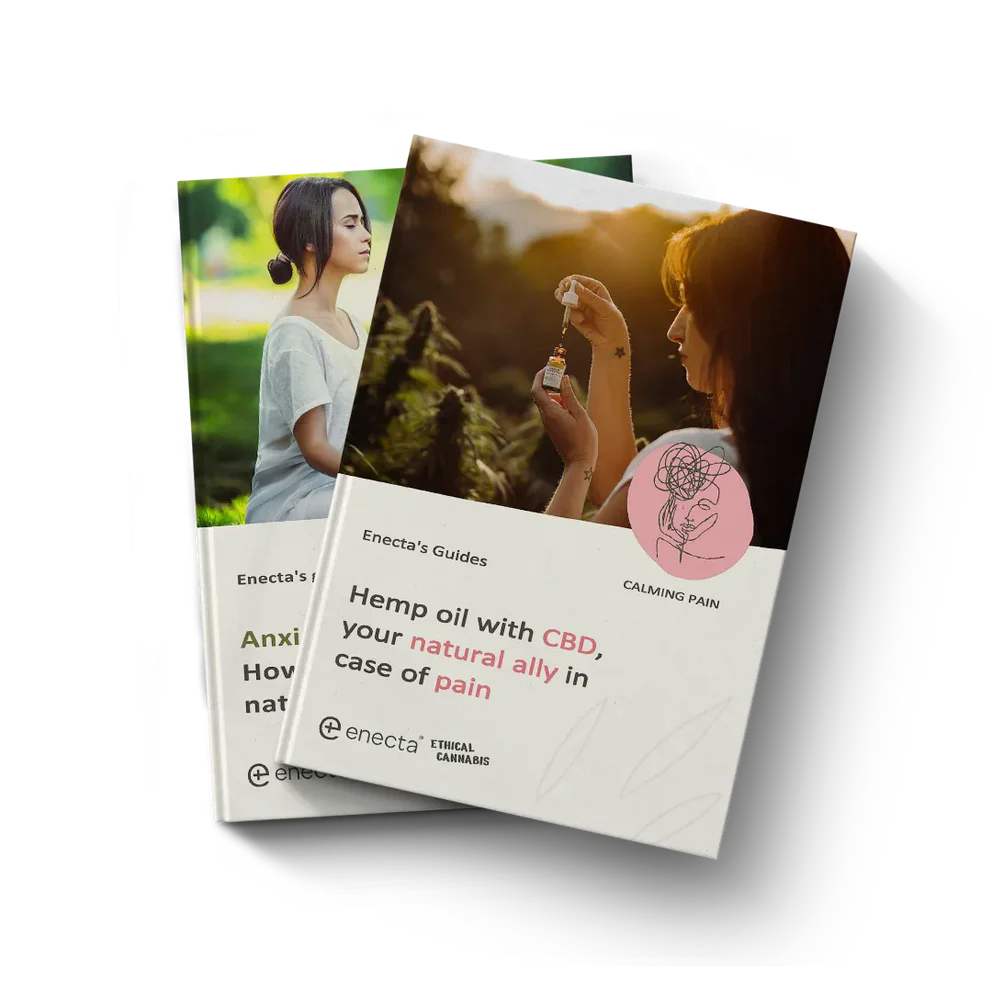
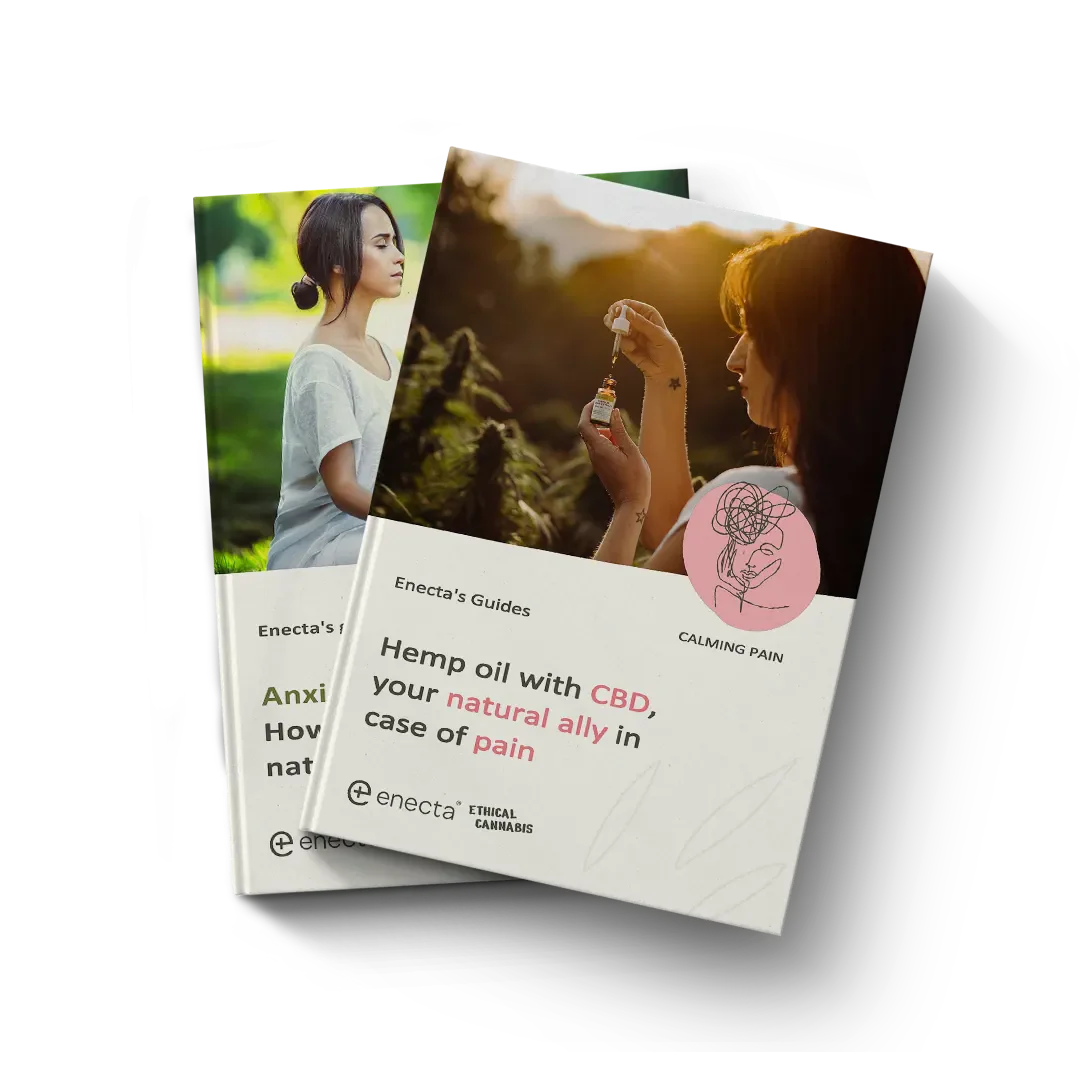
Download our free guides and get a 15% discount
DOWNLOAD NOW
How is CBD manufactured?
To produce CBD, you need seeds of certified cannabis strains registered in the EU's Common Catalogue, the only ones allowed to grow hemp for industrial purposes.
Following current legislation, the plants must contain less than 0.2% THC.
You begin by obtaining a raw extract: a dark, sticky mass resembling molasses and containing all hemp plant components. This first extract is refined in several steps until it reaches the desired degree of purity.
The more you refine the product, the higher the CBD content will be. It is also possible to maintain other compounds (such as terpenes and small amounts of different cannabinoids) and obtain a full-spectrum product.
The extract is then diluted in a carrier oil like hemp or MCT oil to produce CBD oils of different strengths.
Once the concentration of CBD exceeds the eighty percent mark, the first crystals begin to form. If you continue the refining process, you can obtain an extract with a purity of up to 99% and more, i.e. CBD crystals.
References
On PubMed you’ll find all the latest studies on CBD.
Enecta stands for quality and safety
We have been growing hemp plants and manufacturing cannabis-derived products since 2013. We use only certified hemp varieties that made it into the EU's Common Catalogue. In particular, Enectaliana and Enectarol, two strains for extraction that we have developed in a market still dominated by traditional industrial hemp.
We grow our organic hemp plants according to the WHO guidelines on good agricultural and collection practices (GACP) and manufacture our products following the GMP (Good Manufacturing Practice) principles. These principles encompass every aspect of the manufacturing process, from the type of product to the qualifications of the workforce.






































